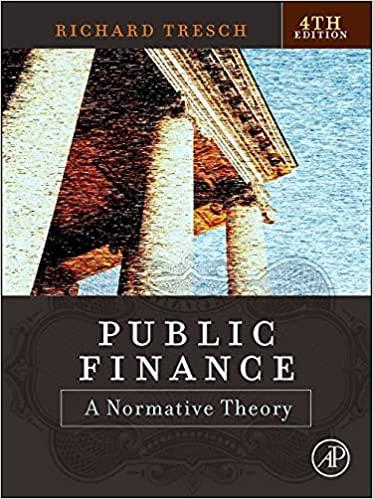Answered step by step
Verified Expert Solution
Question
1 Approved Answer
Developments Since the Big Bang ( 2 0 0 1 2 0 0 8 ) Entering the 2 0 0 0 s , the non
Developments Since the Big Bang
Entering the s the non performing loan problem reached a turning point.
Prime Minister Junichiro Koizumi championed structural reform and oversaw the final clearing of this bad debt from the banking sector based on a Financial Revitalization Program in October that prioritized eliminating nonperforming loans. The clearing of nonperforming loans had been proceeding slowly in the banking sector through write offs to bad loan reserves. A different approach was needed because this method was not providing a fundamental solution to the problem. Banks were henceforth permitted to directly dispose of their nonperforming loans and proceeded to remove these bad debts from their balance sheets. Because unlike the indirect method this approach threatened dangerously low levels of capital reserves at banks, a rise in bankruptcies in the corporate sector, and an increase in unemployment, the government took steps to control its adverse effects. It injected capital into banks to maintain the stability of the financial system and established restructuring mechanisms for corporations. These mechanisms included the enactment of the Civil Rehabilitation Act and of the function of the Resolution and Collection Corporation RCC and the setting up of the Industrial Revitalization Corporation of Japan IRCJUnder the slogan ofFrom Savings to Investment,Japans government also implemented policies and programs to shift to a marketbased financial system with a strongly rooted securities market at its core in which a diverse range of investors would participate. The policies and programs included the Basic Policies for Economic and Fiscal Management and Reform June ; the Program for Structural Reform of Securities Markets August ; and the Program for Promoting Securities Markets Reform August These policies and programs put an emphasis on the expansion and improvement of sales channels lifted a ban on banking and securities joint branch offices and introduced a securities intermediary system; the diversification of financial instruments and services lifted a ban on wrap accounts, etc.; and the fairness and transparency of the financial business thorough disclosure and the greater supervisory oversight of audit corporations, etc. The authorities aimed at establishing a market that participants would have confidence in and that would attract a wide range of investors. Thanks to
their reforms, the allocation of household financial assets into riskclass assets, such as equities, bonds, investment trusts, and other securities trended upward until The reforms also, however, resulted in an increase in the number and volume of complex financial products and transactions that demanded a comprehensive set of regulations to ensure the thorough observance of investor protection rules and the coverage of an expanding and increasingly diversified range of investment instruments. In response, the
the government revised the Securities and Exchange Law, reintroducing it as the Financial Instruments and Exchange Act. In the aftermath of the financial Big Bang, intermarket competition between exchanges got under way in earnest. The competition was focused on attracting new listings and more transaction volume. The exchanges started targeting new listings around launching startup company markets and growth companies whose shares they successively listed on exchanges. In the battle for greater transaction volume, Tokyo Stock Exchange quickly took the lead. The TSE introduced electronic stock trading and offfloor trading, strengthening its dominant position. The concentration of stock trading on the TSE, however, produced a notable decline in support for regional stock exchanges, leading to successive reorganizations that began around
The question Please answer quickly
Elaborate on the development of the stock exchange in Tokyo after the financial Big Bang. Elaborate the expected and unexpected events in the Tokyo Stock Exchange! Evaluate those events related to the chaptertopic about "Capital Market History" you learned! points
Step by Step Solution
There are 3 Steps involved in it
Step: 1

Get Instant Access to Expert-Tailored Solutions
See step-by-step solutions with expert insights and AI powered tools for academic success
Step: 2

Step: 3

Ace Your Homework with AI
Get the answers you need in no time with our AI-driven, step-by-step assistance
Get Started


